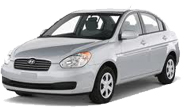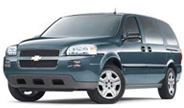If Police Stops You
WHEN YOU GET PULLED OVER BY THE POLICE
First of all, don’t panic! Slow down, switch your turn signal on and pull over. Take a deep breath and calm down. The police officers are also nervous because they never know what to expect when they stop a car.
Roll down your window, set the car in “park”, and then shut your engine off (if you forget to roll down your window first, and have to start the car again, the officer could think that you are going to run). Put your keys on the dashboard. Make all your movements slowly. Keep your hands on the top of the steering wheel. Do not leave your car unless you are requested to do so. Do not speak first. If you are stopped at night, turn on your interior lights immediately. Remember the simple rule: the more you do to ensure the officer’s safety the more you ensure your own.
When the officer comes to your window, they will usually ask for your licence, ownership and insurance. Slowly reach towards your wallet or glove compartment then put your hands back on the wheel. If it’s dark, the officer might follow your hands with a flashlight.
Be polite and cooperative all the time. If you are rude to the officer, it might make you feel better but it definitely will cost you more. If you are polite and cooperative, with luck, you might just get a warning or a less costly offense than you actually committed. Use respectful language, like “Yes, sir ” and “No, sir.”
Comply with all orders and any requests given to you by the officer. If you don’t, you might be in a bigger trouble. Do not talk unless responding to a question from the officer. Do not start any unnecessary conversation with the officer.
Remember, you have a right to remain silent and not incriminate yourself. Do not make excuses, never create stories, and try to avoid admissions of guilt because any admissions you make now, can be used against you later. Sometimes is better to say “I see” or say nothing at all. Silence is not an admission of guilt. Always keep in mind that honesty is the best policy.
Do not argue with the officer if you disagree, leave those issues for the court, but record the actual circumstances in your mind, and after the officer leaves, write it down. If possible, try to note the officer’s name and badge number. Writing down the patrol car plates is also a good idea.
If it’s appropriate, gather evidence for your defense after the police officer has left the scene. Right down all relevant details (for instance, exact location, time of day, traffic, road or weather conditions). Take pictures with cell phone camera (for instance, heavy rain or snow, fog, obscured road sign or a huge pothole that you had to swerve to miss).
READ THE TRAFFIC TICKET CAREFULLY AFTER YOU GET HOME
Read both sides of the ticket after you get home.
There is useful information there that might help you. Make sure you understand all of it.
Get informed. Get as much information as you can. The precise traffic ticket will dictate the precise information you need to get. Find out exactly what offense you are charged with. Find out what the cost of conviction will be, including the fine, jail or community service, and increased insurance rates.
OPTIONS YOU HAVE TO FIGHT YOUR TRAFFIC TICKET
Basically, you have three options to fight your traffic ticket:
- OPTION 1. Plead guilty by paying the fine (a conviction is registered).
- OPTION 2. Visit a court office to plead guilty but make submissions about the penalty (amount of fine or time to pay) (a conviction is registered).
- OPTION 3. Request a trial. Depending on what your traffic ticket says, you may need to either mail in your ticket showing that you want a trial or you may need to visit a court office to file a request for trial.
If you do not choose one of the above options within 15 days of receiving the traffic ticket, or if you do not appear for your trial, a Justice of the Peace will review your case and may enter a conviction without you there.
You have the right to fight your traffic ticket in court. Many court locations permit defendants to meet with prosecutors before the trial to see if the charge can be resolved. If you receive a traffic ticket you should phone the court and ask about First Attendance options.
If you got a traffic ticket you might seek assistance from a paralegal that specialize in defending traffic ticket cases.
The paralegal has to be licensed by the Law Society of Upper Canada.
It is always a good idea to hire CP Paralegal Solutions to fight your traffic ticket. For more information please visit
www.paralegaltoronto.ca
Car Rental Toronto 4U provides clean, reliable, late model used cars, pickup trucks, vans, minivans, and sport utility vehicle or SUV for short or long term vehicle rental and lease. Always check with www.CarRentalToronto4U.ca for moving, business needs, vacation car and pickup truck rentals, college and university special student rates for Toronto car rental.
 Hyundai Accent (or similar)
**Daily Rate $29.99**
Hyundai Accent (or similar)
**Daily Rate $29.99**
 Ford Taurus (or similar)
Ford Taurus (or similar)
 Chevy Uplander (or similar)
**Monthly Rate $800.00**
Chevy Uplander (or similar)
**Monthly Rate $800.00**

 on your next rental
on your next rental